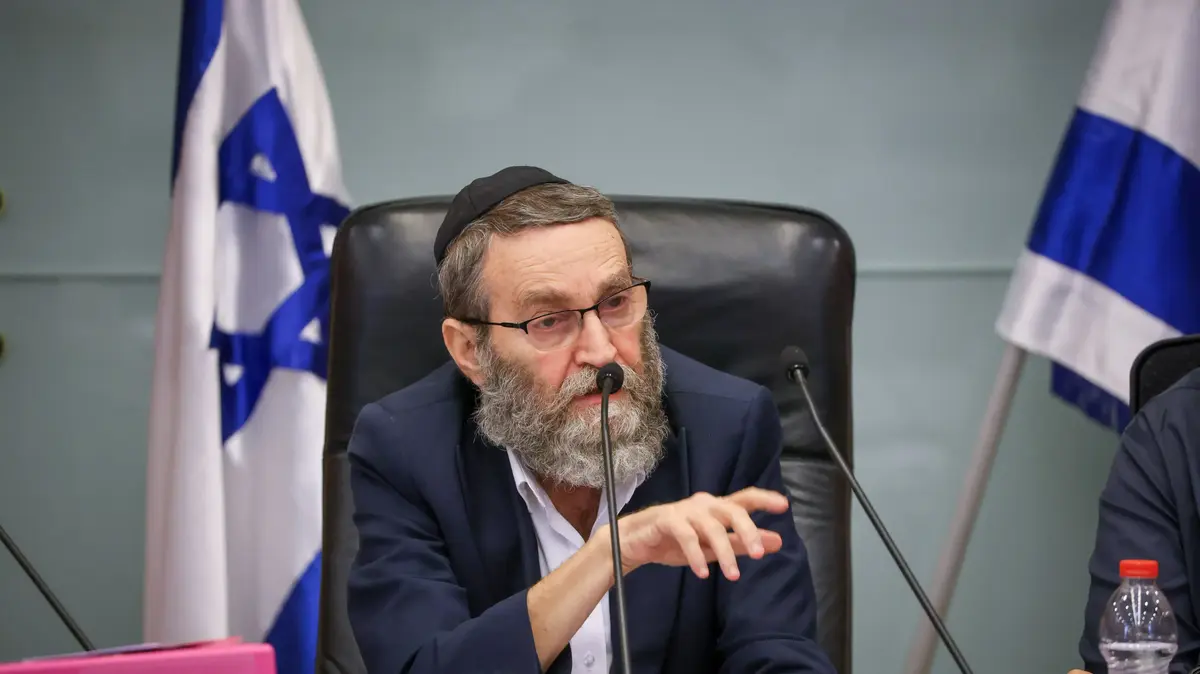Two photographs of Pelé hang on the wall of the office of the new president of the Inter-American Development Bank (IDB).
Ilan Goldfajn, a 56-year-old Brazilian, is passionate about soccer and assures that it has served him as a lesson in life.
He remembers the disappointment he suffered in 1982, at the age of 16, at the World Cup in Spain.
“Brazil was a great team, they were going to win the World Cup, but we lost to Italy.
I learned that you are not going to always win and you are going to be disappointed, but you have to continue.
And that has also helped me in my career, ”he explains.
Goldfajn won the vote to head the IDB by a landslide after the traumatic stage of the American Mauricio Claver-Carone, dismissed last September.
He declares himself very excited about the period that is opening and is grateful for the welcome he has received.
“There is a great opportunity, a hope that relations are non-conflictual, open, transparent, that there is not a culture of fear and it is not a problem to have different opinions on issues.
Everyone is perceiving that this administration and the IDB are going to be about dialogue, building bridges, coalitions, democracy, in the sense of openness to different opinions.
And that has already excited many people ”, he explains in an interview with EL PAÍS.
The new president of the IDB has not yet defined his team, but he is clear about his vision and priorities.
He wants the IDB to be the most important multilateral development bank in the region and for member countries to see it as an essential ally, not only for loans, but also for giving advice, sharing knowledge and providing solutions.
“Along with that, we want to have the IDB of convergence, the IDB of dialogue, where differences find an intermediate point, a path together, of coalitions.
My own election gave us a mandate to walk together for what matters: the hundreds of millions of people in the region."
Regarding priorities, the first are social issues, such as the fight against poverty or inequality.
“Not only income inequality, but also gender, race and various inequalities that people no longer accept,” he explains.
Also in that chapter he includes the fight against food insecurity, aggravated by the pandemic and inflation.
The second priority is the climate: “We have to work on the goals and decarbonization in a responsible way, both in mitigation and adaptation in Latin America.
We have countries that are already experiencing hurricanes and other phenomena with greater frequency.
The climate problem for Latin America and the Caribbean is not only the future, it is already the present”.
And the third priority is investment in digital and physical infrastructure.
He also wants
Another of his obsessions is efficiency, if the objectives of the bank's programs are met: "The focus cannot be the amount of resources we lend, but whether that amount has the effect we want."
He believes that the bank's priorities fit with those of the governments of the entire region that have taken a political turn to the left in recent years.
“This dialogue profile has all the capacity to bring together different opinions.
Our priority is social, fighting poverty and inequality, and I don't think the rulers have another agenda.
I also see that societies ask for attention to the climate.
If there is a consensus in the region on anything, it is that everyone wants a stronger IDB.
I'm going to use that to work."
He assures that very talented people with a desire to do things have been found at the bank.
He took office on December 19, but he has done it prudently: But he does it prudently: “I come now with more questions than answers.
I want to listen to people, I am still in the process of understanding how everything works”.
Faced with criticism that the IDB works in silos and that there is no communication, he ensures that there are cross-cutting issues such as climate, diversity, gender, inclusion, innovation and values such as respect for difference, transparency and ethical issues that should pervade the entire organization.
Goldfajn insists time and time again on the need to create consensus.
In his campaign, he said that he wanted to be pragmatic more than political, but he qualified that message: “When I was referring to being more pragmatic and technical and less political, I was referring to not being ideological, not to bring ideology to the bank in a world that is more polarized.
Our decisions have to help reach consensus and that is also a political decision.
What I do not want is a polarizing and ideological politics.
I want to pragmatically worry about whether the hundreds of millions of people in Latin America have public services or whether the climate challenge is addressed”.
His constructive spirit is exhibited when asked about the criticism of the president of Mexico, Augusto Manuel López Obrador, or about the influence of China in the bank, questioned by the previous president, Claver-Carone.
On Mexico: “When you look at it programmatically, technically, I don't see any problem.
Operationally, there is a good relationship, there is communication, there are projects in which we are aligned.
We have to leave ideologies behind, focus on people, and seek bridges, with Mexico and with all countries."
And about China:
"
All partners have the same goal of having a large, active IDB that can improve the lives of millions of citizens in the region."
Given the rise in interest rates, he adds: "The role of the IDB becomes even more important in the coming years, because when credit becomes more expensive or scarce, the role of public financing becomes more important"
Goldfajn comes to the IDB from the International Monetary Fund (IMF), where he was since September 2021 director of the Western Hemisphere Department.
He was governor of the Central Bank of Brazil between 2016 and 2019 with great success.
His candidacy for the IDB was presented at the stage of the previous president, Jair Bolsonaro, and ratified by the current one, Luiz Inácio Lula da Silva.
He emphatically condemns the assault on the institutions of Brasilia last Sunday.
“Attacks on institutions and democracy cannot be accepted and when there is an attack on an institution in a country it is an attack on the entire region.
We all have to defend democratic values, peaceful electoral transitions and the rule of law”, he says.
He also has experience in the private sector, where he could have had a comfortable career, and hopes that the IDB "be a catalyst for more private resources, because public resources are finite."
But the public throws him: “It is important to have a purpose, an objective in life, a reason for what you are doing and in the public sector your work has the potential to change lives on a scale that it does not have in the company, For example, when you are in a central bank and inflation goes down and people's income goes up, or here if you have a project for digitization in the region, for the climate, or to combat poverty or inequality.
You find that only here”.
Compared to the more global approach of the IMF, the IDB is more focused on development and on a region, but there is also another practical difference: "The bank speaks a lot of Spanish, it is very funny because in a meeting I speak Portuguese, Spanish and English and we switch from one to the other.”
Born
In 1966 in Haifa, in the bosom of a Jewish family, Golldfajn graduated as an economist at the Federal University of Rio de Janeiro, did a master's degree at the Catholic University of Rio de Janeiro and received a doctorate from the Massachusetts Institute of Technology (MIT). .
After that doctorate, at the beginning of his career, he already worked in Washington, at the International Monetary Fund (IMF).
Back then, between 1996 and 1996, he was a young economist living in the suburbs, with his wife and newborn children.
Now he's back and lives downtown: “It's another phase of life, but I really like the city and life in Washington.
It is very interesting to return after more than 20 years.
The city is completely changed."
Although he follows football as a spectator, what he no longer does is play it: "I used to play football a lot, but in recent years, it has become a more risky activity," he jokes.
Given the traumatic termination of his predecessor, it will be necessary to see if presiding over the IDB is also one.
Subscribe to continue reading
Read without limits
Keep reading
I'm already a subscriber


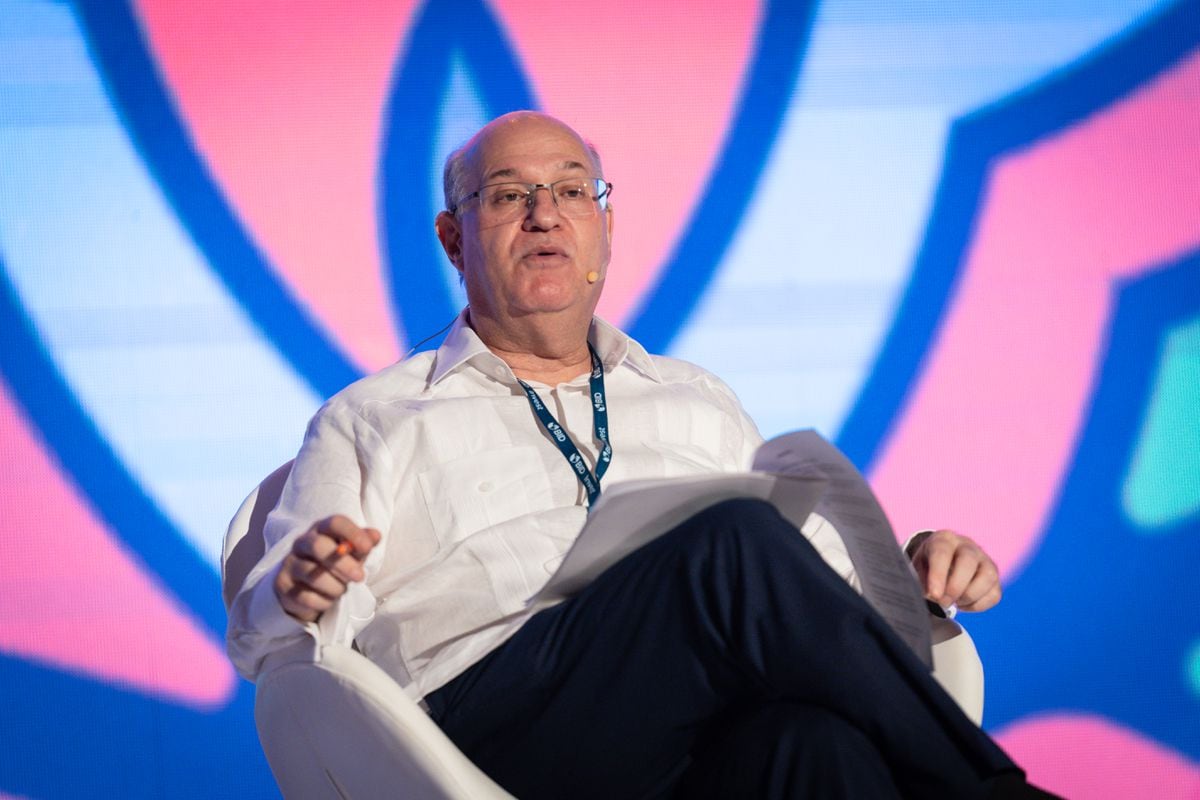
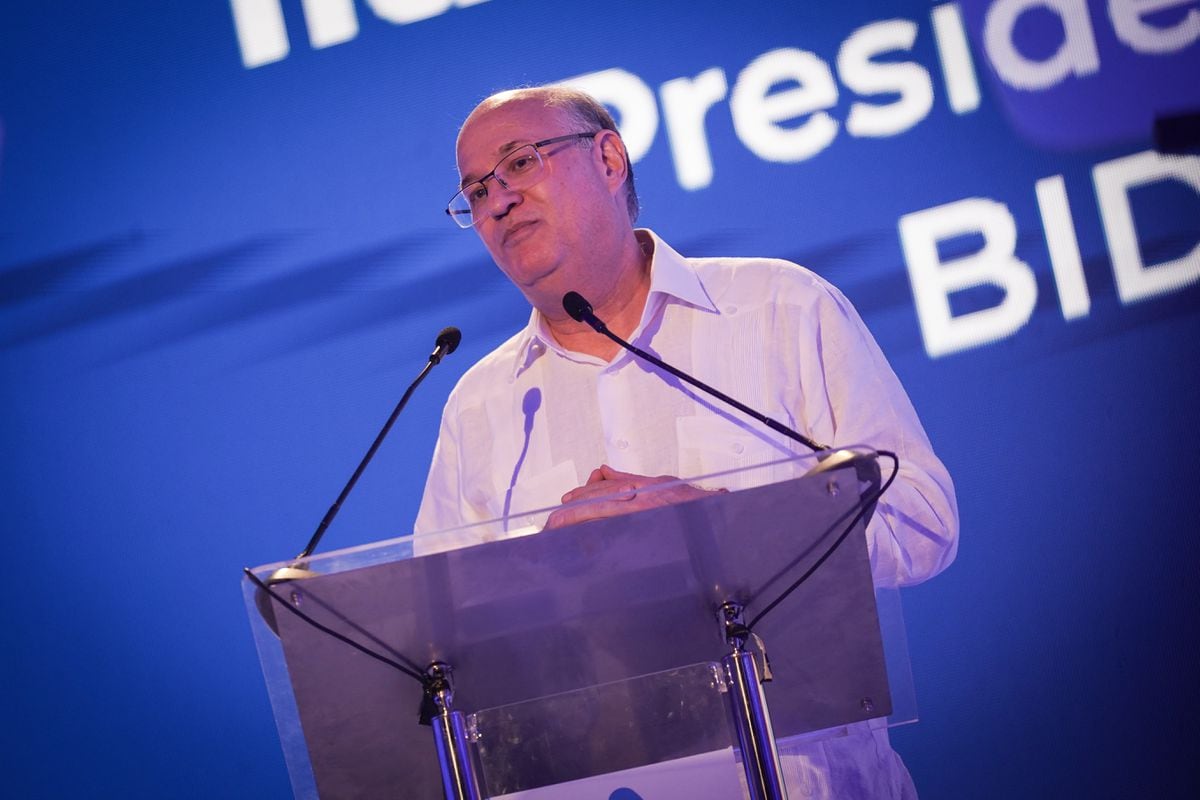
/cloudfront-eu-central-1.images.arcpublishing.com/prisa/2KVLLY26ZNGK3OCBRI676KYGKA.jpg)
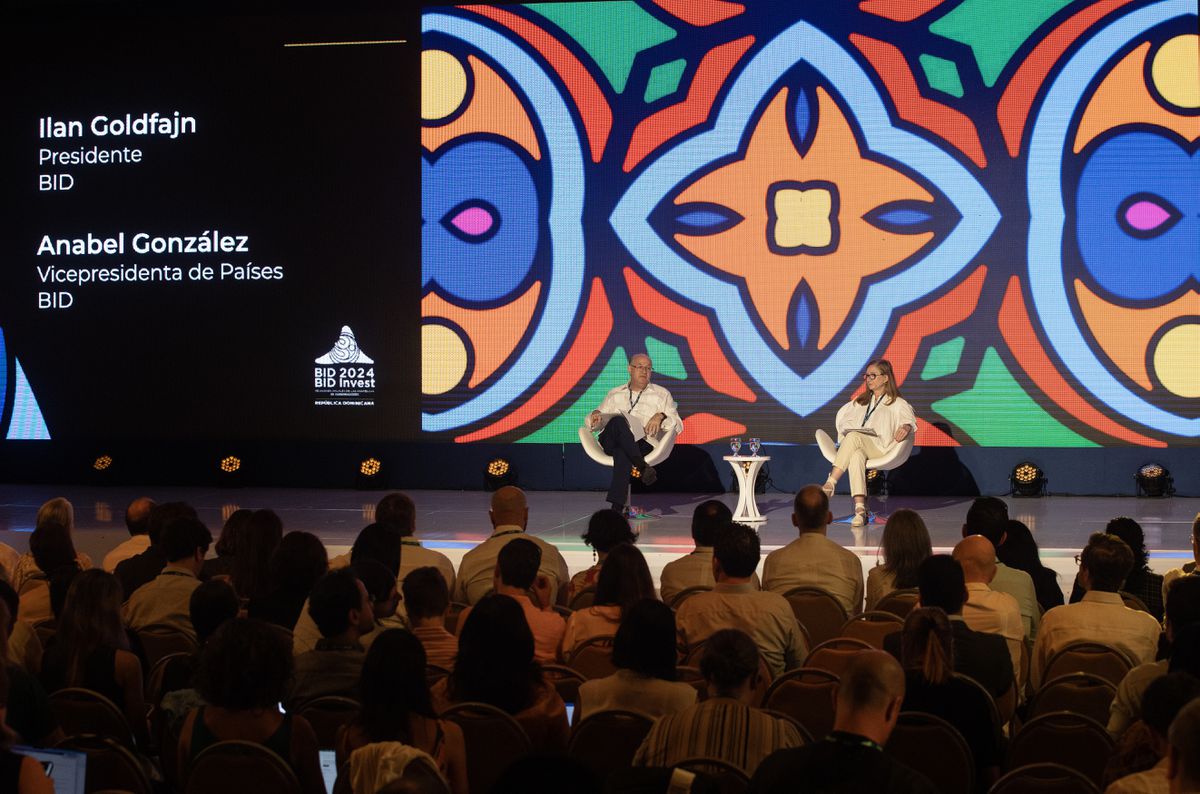
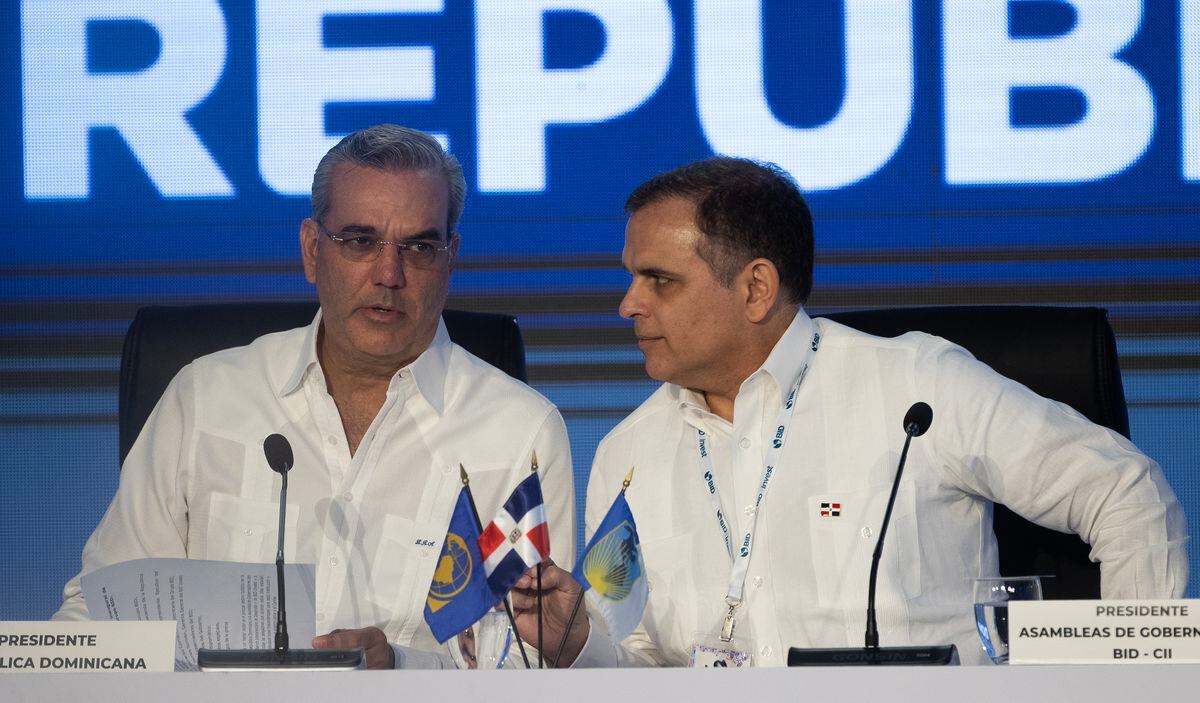
/cloudfront-eu-central-1.images.arcpublishing.com/prisa/ZU5KUJFBSRGVVM2SXJTZBZP3XI.jpg)


